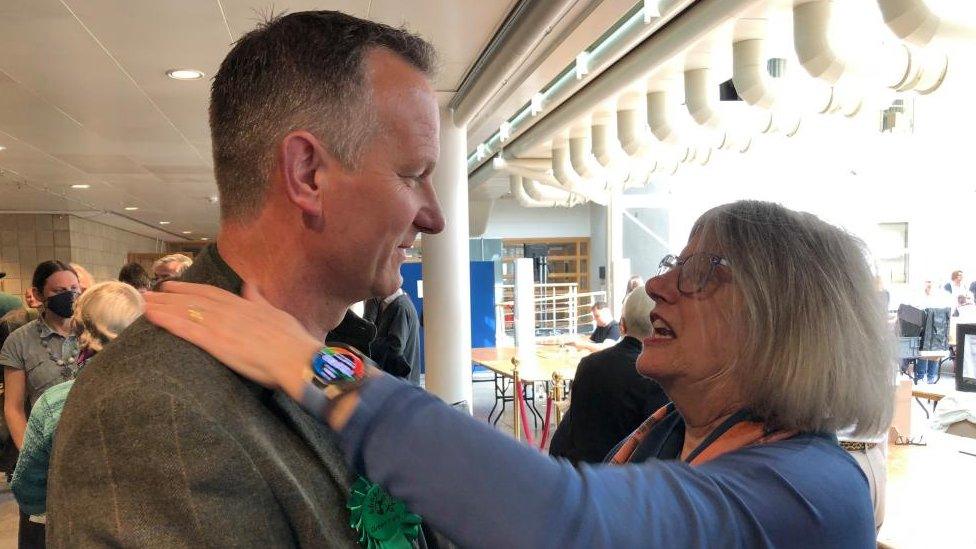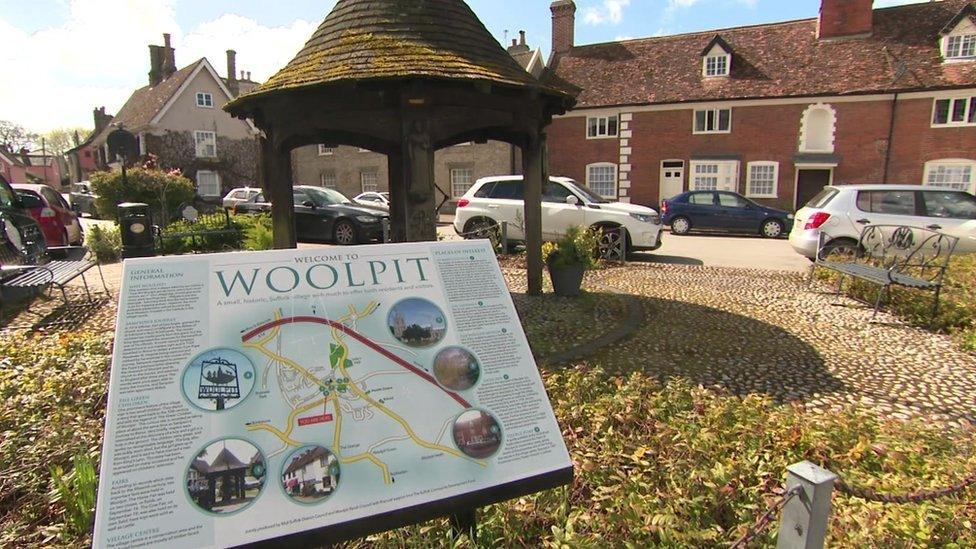Local elections 2023: Green Party makes record gains
- Published
Greens make a "real difference" on subjects such as housing and planning, says co-leader Adrian Ramsay.
The Green Party has had its best-ever local elections, gaining more than 240 seats across England.
The party has had particular success in rural areas, where they have taken seats from the Tories.
They made history in Mid-Suffolk, taking control of a council for the first time. It had previously been a minority Tory administration.
So far, the Greens have gained 241 seats, 47 more than their previous record set in 2019.
The party had hoped to gain 100 new councillors at these elections, but its strategy of targeting rural Tory areas has paid off even better than it expected.
The Greens are now the largest party in Lewes, East Sussex, where they gained eight seats and the Tories lost 19.
In East Herts, the Greens gained 18 seats, becoming the largest party on a hung council, with the Tories losing 27 seats.
The Greens have also taken seats from Labour, though Labour has overtaken them in Brighton and Hove, and regained control of the council.
Green co-leader Carla Denyer said her party was benefiting from "a deep dislike of the Tories and Starmer's uninspiring Labour".
Co-leader Adrian Ramsay said victory in Mid Suffolk would "pave the way for electing the first Green MP in the area as well to really represent people on a national stage as well as locally".

The Greens have made gains on East Suffolk Council, which was run by the Conservatives prior to Thursday's election
The Greens have traditionally performed best in urban areas, such as Brighton and Bristol, but the party also concentrated its campaigning firepower on rural, traditional Tory areas at these elections.
In Mid Suffolk, the party has had a presence on the council for 20 years and was the only non-Conservative option on the ballot paper in more than a third of the seats up for election.
It campaigned hard on local issues, including opposing plans for a big new housing development.
'Like what they see'
The Tory leader of Mid Suffolk District Council Suzie Morley lost her seat to Green candidate Nick Hardingham, saying her party had lost its reputation for economic competence because of "what happened before Christmas".
"The last six months have left a nasty taste in a lot of people's mouths," she added.
The Green Party also made 12 gains at neighbouring East Suffolk Council, where all 55 seats were up for grabs.
In February, Ms Denyer told the BBC the growth of climate change as a political issue was "definitely a factor" in the Green Party's recent success at the ballot.
"But I think that it's also true that people get a Green councillor in their local area and they like what they see," she added.
Analysis of key ward results by elections expert Sir John Curtice appears to bear this out.
The party's vote has increased in wards where they performed best in 2019, suggesting they have an ability to concentrate their vote in certain areas, which is needed for success in general elections.


- Published5 May 2023

- Published19 April 2023
